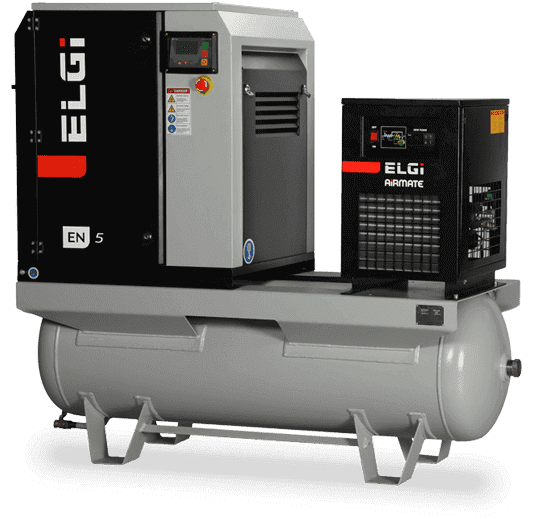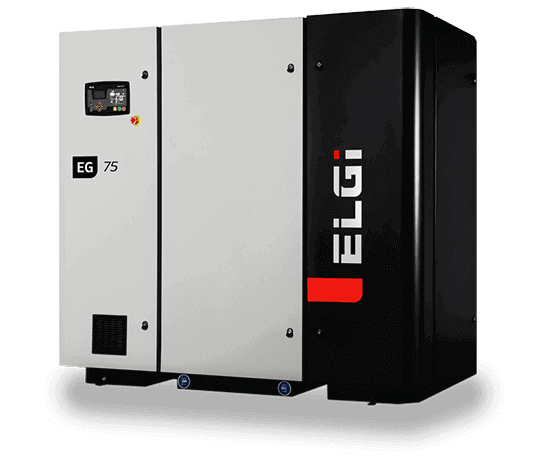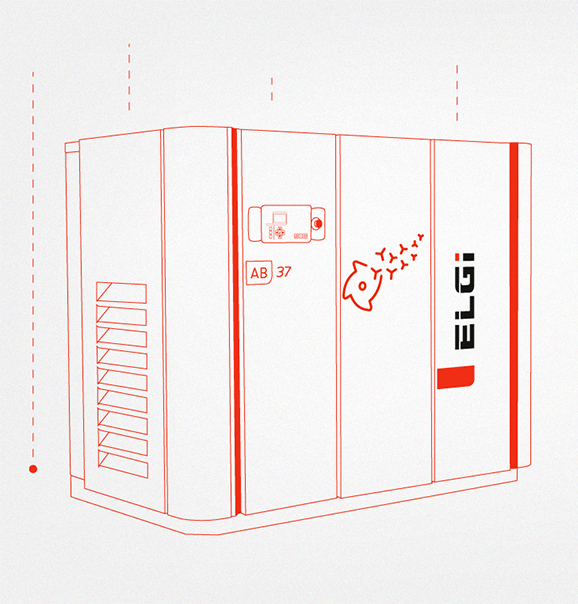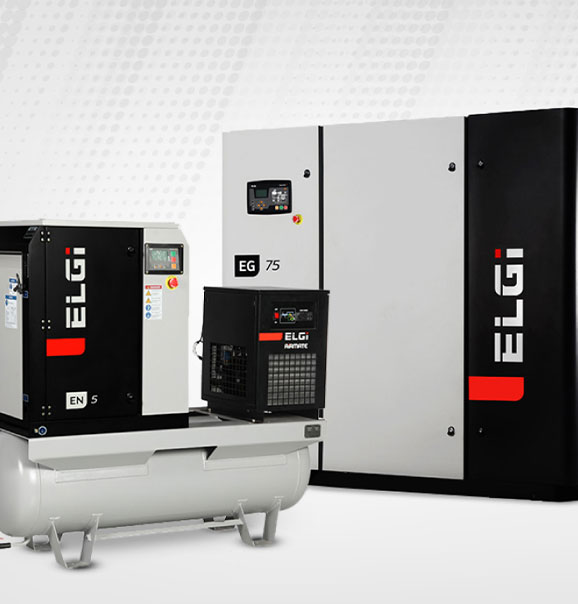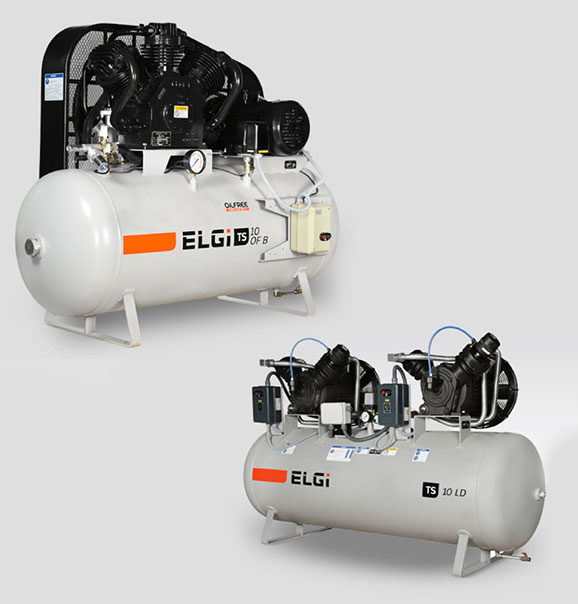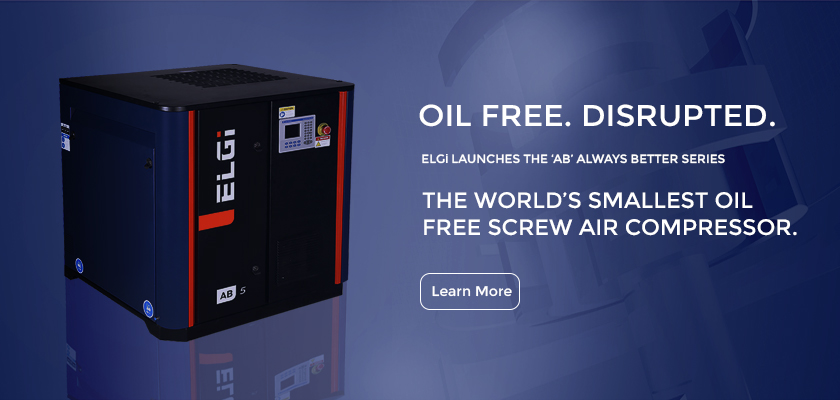OIL VS. OIL-FREE COMPRESSORS: CHOOSING THE RIGHT SOLUTION FOR YOUR NEEDS
Compressed air is a vital resource in various industries, and selecting the right type of compressor is crucial to ensure optimal performance and efficiency. Two common options are oil lubricated and oil free compressors, each with their advantages and considerations.
OIL COMPRESSORS
Oil-injected compressors, also known as lubricated compressors, utilize oil to lubricate internal components and reduce wear and tear. These lubricated air compressors offer high efficiency and are well-suited for heavy-duty applications that demand continuous operation. They are commonly used in industries like manufacturing, automotive, and construction. However, the presence of oil in the compressed air can require additional filtration and separation processes, especially in industries where oil-free air is critical.
OIL-FREE COMPRESSORS
Oil-free compressors, as the name suggests, do not use oil for lubrication. Instead, they rely on innovative designs and materials to achieve frictionless operation. These compressors provide clean and contaminant-free compressed air, making them ideal for pharmaceuticals, electronics, and food and beverage industries. While oil-free compressors tend to have higher upfront costs, they eliminate the need for oil-related maintenance and filtration, making them a cost-effective solution in the long run.
FACTORS TO CONSIDER WHILE SELECTING THE RIGHT COMPRESSOR
AIR QUALITY REQUIREMENTS
An oil-free compressor is a better choice if your application demands clean and oil-free air.
MAINTENANCE
Oil-free compressors generally require less maintenance as they lack oil-related components.
ENERGY EFFICIENCY
Both types can be energy-efficient, but oil-free compressors may have an edge due to reduced internal friction.
APPLICATION
Consider your industry and application needs when choosing between oil and oil-free compressors.
COST
While oil-free compressors have higher upfront costs, their long-term benefits may outweigh the initial investment.
The choice between oil and oil-free compressors depends on your industry, application requirements, and budget. Understanding the advantages and limitations of each type will help you make an informed decision that aligns with your operational needs and goals. Whether you prioritize efficiency, air quality, or specific industry standards, both oil and oil-free compressors offer solutions tailored to your unique compressed air needs.
LUBRICATED COMPRESSOR MAINTENANCE TIP
Keeping Your Electric Lubricated Compressed Air System Running Smoothly
Regular maintenance is essential to ensure optimal performance and longevity of your lubricated air compressor. Here are some valuable tips to help you maintain your system effectively:
Check Oil Levels: Regularly monitor the oil levels in your rotary air compressor’s reservoir. Low oil levels can lead to increased friction and wear, affecting the overall efficiency of the system.
Change Oil Filters: Clean or replace oil filters according to the manufacturer’s recommendations. Clogged filters can restrict oil flow and lead to contamination.
Inspect Belts and Pulleys: Inspect the drive belts and pulleys for signs of wear, cracks, or misalignment. Replace any damaged components to prevent breakdowns and ensure smooth operation.
Drain Condensate: Regularly drain the moisture and condensate from the screw air compressor’s tank and system. Accumulated moisture can lead to corrosion and compromise air quality.
Monitor Temperature: Keep an eye on the operating temperature of your oil injected compressor. Overheating can indicate issues with cooling systems or insufficient lubrication.
Inspect Hoses and Fittings: Regularly check for air leaks, loose fittings, and worn-out hoses. Addressing these issues promptly improves efficiency and prevents energy wastage.
Inspect Valves: Ensure that all valves, including intake and discharge valves, are functioning correctly. Malfunctioning valves can lead to pressure imbalances and reduced performance.
Maintain Air Filters: Clean or replace air filters regularly to prevent debris and contaminants from entering the compressor and causing damage.
Follow Manufacturer Guidelines: Adhere to the manufacturer’s recommended maintenance schedule and procedures. This includes oil change intervals, filter replacements, and other essential tasks.
Professional Servicing: Periodically, enlist the services of qualified technicians to perform thorough inspections and servicing. Professional inspection can help identify potential issues and ensure comprehensive maintenance.
By following these maintenance tips, you can extend the lifespan of your oil flooded compressor, enhance its efficiency, and avoid costly repairs. Remember that proper maintenance keeps your system running smoothly and contributes to consistent and reliable compressed air supply for your operations.
BENEFITS OF OIL-LUBRICATED COMPRESSORS
One key benefit of oil flooded air compressors is enhanced lubrication, as the oil ensures smoother operation, reduces friction, and extends the lifespan of the compressor’s components. The presence of oil also helps dissipate heat, preventing overheating and promoting optimal performance. Another advantage of oil injected air compressors is quieter operation, as the oil film dampens noise generated by moving parts. Furthermore, oil-lubricated compressors can achieve higher pressure ratios, making them suitable for industrial compressed air applications. Maintenance and serviceability are relatively straightforward, with regular oil changes. They are versatile, and capable of handling varying loads and demanding environments.
FREQUENTLY ASKED QUESTIONS
From service plans, service networks to Genuine ELGi parts, explore our vast range of services and parts to find exactly what you need.
PLACE A REQUEST


